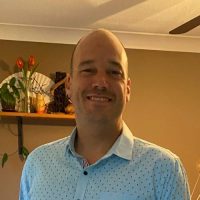
Philippe Leroux
MA Candidate - International Development Policy
| Degrees: | Bachelor of Commerce, Honours (Carleton University); Bachelor of History (Université de Montréal) |
Philippe cares about people. That’s why he is a returning student, getting the degree and skills that will boost his capacity to have an impact on preserving and improving the lives of those less fortunate around the globe. After a career in financial institutions, Philippe dedicated four years of work to a community organization that cared for women in various situations of poverty in the National Capital Region of Canada. There are people in need here and abroad and when, during his recent bachelor of Commerce, he had the opportunity to participate in the Buckets to Rainbarrels’ project in Tanzania, an old flame reignited vividly! The next step was to be a Masters’ degree in International Development Policy.
Philippe has backpacked in Europe, on the Camino a Santiago de Compostella and the Atlas mountains of Morocco, sleeping in his tent. Taught English in the metropolis Seoul, South Korea, for a year. Teaching again in Costa Rica and Honduras, he self-started an investigation of organic agriculture and Fair-Trade opportunities, then visited neighbouring countries of Central America. Came back to settle in Canada. When needing to challenge his perspectives again, he travelled a month to Venezuela, then too long passed before the occasion to visit Tanzania occurred. Now the lesson is learned: allying work and curiosity about the “other”, International Development will tie professional skills with passion.
Philippe is interested in Official Development Assistance localization, focusing on fragile and conflict-affected states. This often brings the topic of governance and civil society participation. Philippe has published an op-ed on Canada’s role as a middle power in the global arena (https://iaffairscanada.com/2020/canada-leading-from-the-middle/) and the opportunity to act with leadership. Unfortunately, evidence seems to lead to the conclusion that long-term development aid to the least-developed nations is not a priority at the moment. This commands more investigation on what can be done in donor countries, but more importantly in least developed countries, to ensure that long-term development programs are implemented and that their progress is measured.
Philippe has had a career dealing with financial data, so quantitative analysis methods come naturally. He currently assists Dr. Jean Daudelin with quantitative research on gendered homicides at the national scale. Defining correlations and searching for evidence is primordial. This being said, “numbers” are only one side of the picture, and qualitative research is also important; hence Philippe’s excellent research skills. His analytical skills have merited him a Senate Medal for Outstanding Academic Achievement, financial awards and invitations to selective professional networks. Researching social and material development for the most vulnerable is not just a passion, it is a necessity.